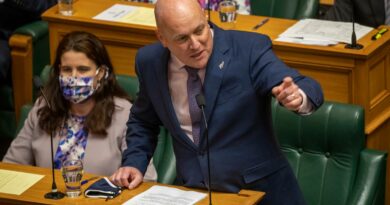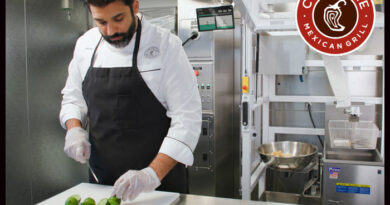SAG-AFTRA Panelists Say “Disability Consistently Overlooked In Conversation About Diversity & Inclusion”
The casting of performers with disabilities should be part of Hollywood’s ongoing efforts to be more inclusive, but it’s often not, even though the Americans with Disability Act of 1990 makes it just as illegal to discriminate against the disabled as it is any other protected group.
“Disability is consistently overlooked in the conversation about diversity and inclusion,” said Anita Hollander, national chair of SAG-AFTRA’s Performers with Disabilities Committee, who hosted the union’s panel Thursday on disability inclusion in Hollywood. The discussion was part of the guild’s Stop the Hate summit.
“There are just too few opportunities for performers with disabilities,” said Camryn Manheim, SAG-AFTRA’s national secretary-treasurer, in her opening remarks. “In fact, people with disabilities make up less than 3.5% of all onscreen characters. And when we do see characters with disabilities, they are often played by non-disabled actors. It’s a fact, the number of people with disabilities onscreen and working on set and behind the camera is just dismally low, and that must be addressed by our industry.”
Even so, the panelists agreed that things are getting better, both in the casting of disabled performers and with on-screen depictions of persons with disabilities.
Jay Ruderman, whose Ruderman Family Foundation is one of the nation’s leading advocates for the disabled – and for many years one of Hollywood’s harshest critics – noted that white papers the foundation has issued found that “A couple of years back, only 5% of characters with disabilities were authentically portrayed; then it jumped up to 22% a few years ago. We also did a marketing study showing that 25% of the United States population, the world population has a disability and there’s billions of dollars that the industry can make by authentic portrayal. And most people in this survey said they want to see authentic portrayal.”
But Hollywood has been slow to catch on. “In the last 30 years, half of the men that have won the Best Actor Oscar won for playing a disability when they themselves did not have a disability,” Ruderman said. “There is a mind-set that playing disability by an able-bodied actor is great acting.”
Hollander, who is an amputee, quoted Christine Bruno, her counterpart on the SAG-AFTRA New York local’s Performers with Disabilities Committee, who said that “disabled performers are often not allowed to play ourselves because disability is often seen in the industry as a technical skill or a bag of tricks, and many fellow actors get awarded for their performances.” Hollander added that “We’re here to tell you that disability is not a technical skill: it is a lived experience. So where do we go from here?”
Danny Woodburn, national vice-chair of the SAG-AFTRA Performers with Disabilities Committee, recalled a sit-down he had with actor Bryan Cranston to discuss Cranston’s portrayal of a quadriplegic in The Upside, which created a lot of flak in the disabled community.
“We sat for about 45 minutes over coffee, nice and casual, two old buddies meeting up, and I told him what the frustrations were. And he explained to me a number of things, like how long ago this had been offered to him, and also the very real part of this, which is marquee — Bryan is a marquee name, right? So his name is gonna sell the film. And I said, ‘That’s a legitimate understanding. But if people with disabilities aren’t given opportunities, they’re not gonna make it to that place of marquee,’ which he understood fully.”
Woodburn proposed a solution, going forward, asking Cranston to do this: “When you have this opportunity and you’re in a film and there’s disability representation that’s gonna be done by somebody who’s an A-lister, if you take one job away, you have to give back three, so you have to put three people with disabilities in that film.”
“I feel like that’s an important part of this picture and talking to studios and saying the same kinds of things,” Woodburn said. “If you have to cast somebody, and it’s going to keep happening – Sound of Metal is another example, if I’m not mistaken – we have to make sure that we’re not only gonna give those actors an opportunity — other deaf and hard-of-hearing performers opportunity in that same film — but we also have to highlight them; get them out there to the press.”
CJ Jones, a deaf actor who had a major role in 2017’s Baby Driver and who often advises producers about the portrayal of deaf characters, said that “authenticity is happening more and more now, like Godzilla vs Kong. They do have a deaf child actor in that movie. And you know, it’s this big crazy movie and the industry is picking up on authentic roles compared to three years ago. These roles are still coming about and it’s really still below the line with working with disabled people in the industry. We’re trying to get up to par to where we need to be.”
Jones, who’s a member of the Ruderman Family Foundation International Advisory Council, said “we’ve had panel discussions about education in the industry to match the needs of people with disabilities on set. And this year we’re pushing more and more because we need the authenticity to keep on happening.”
All the panelists agreed that diversity on-screen — or the lack of it — has an impact on society at large. “I think that diversity in the industry has an impact on stigma and we’ve seen great leaps and bounds in terms of other groups; African-Americans, Hispanic, LBGTQ, Asian community,” Ruderman said. “So many different communities that have progressed, and the disability community has progressed, but not enough. And I think what I would say is the entertainment industry has to understand that disability is part of diversity. Michelle Obama once said that, ‘Most of us get to know people who are not like us through entertainment.’ ”
Ruderman, who said that he’s seen improvement in the casting process, noted that when his foundation started getting involved in advocating for disability rights in entertainment, “we would call out politicians or celebrities, singers, business leaders, who were referring to disability in a derogatory way, we would put out a press release and speak against that. We sort of gradually came into entertainment in the inauthentic portrayal of disability…and we were very harsh in our criticism. Since then, we’ve evolved into major partnerships with the Academy Awards, the Sundance Film Festival, Yale Drama School, and many others in order to elevate the issue of disability as part of diversity.”
The Ruderman Family Foundation also offers incentives to studios, networks and content creators that follow its guidelines on the auditioning of actors with disabilities. Hollander noted that “several organizations, including ViacomCBS and NBCUniversal, have committed to following the foundation’s guidelines on auditioning actors with disabilities in each new production.”
All the panelists agreed that more needs to be done to bring disability into the conversation about diversity, inclusion and depiction.
Check out the panel here at the 8:25 mark:
Read More About:
Source: Read Full Article



